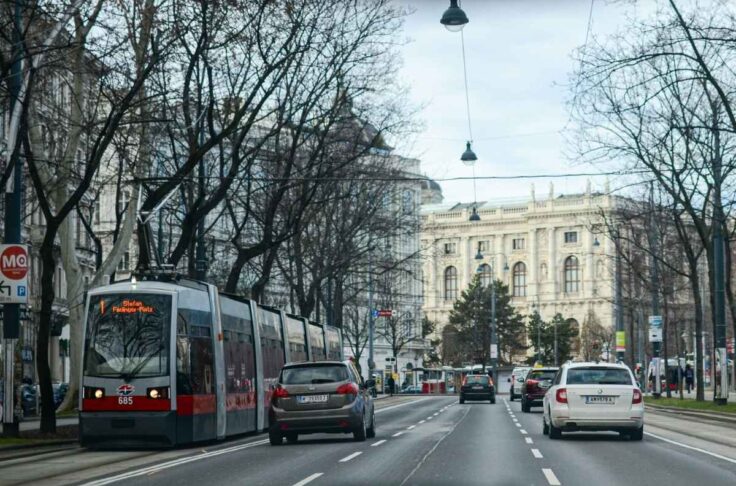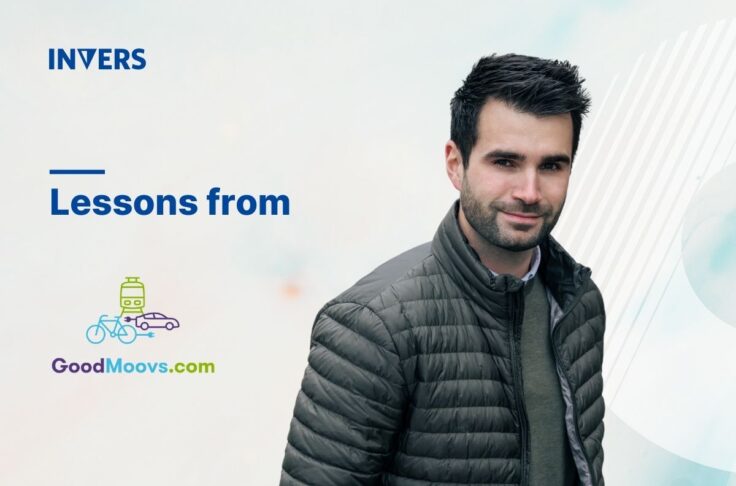Insights Interview on Free-Floating Car Sharing in Bulgaria & Lithuania
Summary
We interviewed Nerijus Dagilis, SPARK Founder and Chairman of the Board of SPARK Technologies, about their expertise in car sharing in Bulgaria and Lithuania. The topics included the management of a 100% electric fleet, Spark’s new P2P elements within an existing free-floating model, and experience with their loyalty system eGo. Launched in mid-2016, Spark is a car sharing operator with a focus on free-floating. Spark currently runs 1,700 electric vehicles.

The European car sharing market is complex, featuring a diverse range of business models implemented on the streets. Operators employ various strategies, such as station-based services, peer-to-peer car sharing, and free-floating services, to address distinct use cases and offer distinct services. In addition, the European car sharing market is one of the largest and the most complex in the world. To address and explain some of these complexities, INVERS published their INVERS Mobility Barometer on “European Car Sharing 2024”. This 70-page report helps car sharing operators quickly understand key market dynamics, insights, and trends.
Table of Contents
Could you briefly introduce us to your business model, company history and fleet specifics?
Our business operates free-floating car sharing in Bulgaria & Lithuania focused exclusively on electric vehicles (EVs). Launched in mid-2016, we saw an opportunity to address growing urban mobility needs while promoting sustainability. Via user-friendly mobile app customers can locate, rent, and park EVs anywhere within designated zones in major cities, providing flexibility and convenience.
Our current fleet consists entirely of 1,700 EVs, ranging from compact city models to mid-sized SUVs ensuring accessibility for various user needs. Our commitment to green mobility aligns with growing eco-conscious trends, aiming to reduce carbon footprints and support cleaner urban environments while offering an affordable, convenient alternative to private car ownership.
In both markets you focus 100% on electric cars and have an extensive charging system. What is your experience in managing this in a free-floating service?
Managing a 100% electric fleet in a free-floating service presents unique challenges and opportunities. A key focus is maintaining an extensive charging infrastructure to ensure vehicles are readily available and efficiently charged.
In both Lithuania and Bulgaria, we partner with our sister company, Eldrive, which invests heavily in charging infrastructure development. This partnership allows us to expand coverage not only across urban areas but also along inter-city roads. As a result, recharging is more convenient for both our users and our operations team.
Monitoring battery levels is critical; our proprietary system automatically prompts when recharging or other service works are necessary. We also incentivize users to charge vehicles after use, offering discounts or rewards. While the operations requires careful planning and maintenance, the advantages of lower fuel costs, reduced emissions, and eco-friendly branding – outweigh the complexities, contributing to a more sustainable urban mobility solution.
Recently, you also launched a peer-to-peer (P2P) service. What was the motivation to add it to your free-floating core offering?
It is important to note that our peer-to-peer (P2P) service is within our free-floating car-sharing model. The P2P functionality allows private individuals and companies to list their vehicles on our platform, leveraging our existing service infrastructure.
This approach creates additional opportunities for private car owners, allowing them to generate revenue by renting out their vehicles when not in use. Moreover, businesses can strategically invest in EVs specifically for adding them to SPARK platform with the assurance of guaranteed revenue, which enhances the likelihood of a favorable return on their investment.
The P2P feature reinforces our sustainability goals by promoting the efficient use of private EVs, increases our service availability while enabling us to achieve more sustainable growth.
You have a loyalty system called eGo points. Can you describe how this works and how it enhances your service and user demand?
Our loyalty system, eGo, rewards users for their engagement with SPARK services. Customers earn points through various activities, such as completing rentals, referring friends, or participating in eco-friendly initiatives, like charging low-battery vehicles at any designated stations or at home.
eGo points can be redeemed for discounts on future rentals, special promotions, or exclusive offers, incentivizing users to choose our service repeatedly. By fostering a sense of community and encouraging sustainable practices, eGo system enhance user satisfaction and loyalty, ultimately driving higher demand for our platform. This system not only benefits individual users but also supports our overall goal of promoting electric mobility and sustainable transportation.
Further insights into the European car sharing market
Thank you, Nerijus, for sharing your expert insights.
For more information and interesting findings about European car sharing, we encourage readers to check out our 70-page INVERS Mobility Barometer on “European Car Sharing 2024” with more expert interviews as well as insights from national car sharing associations. To discover more from SPARK, please visit their website.


